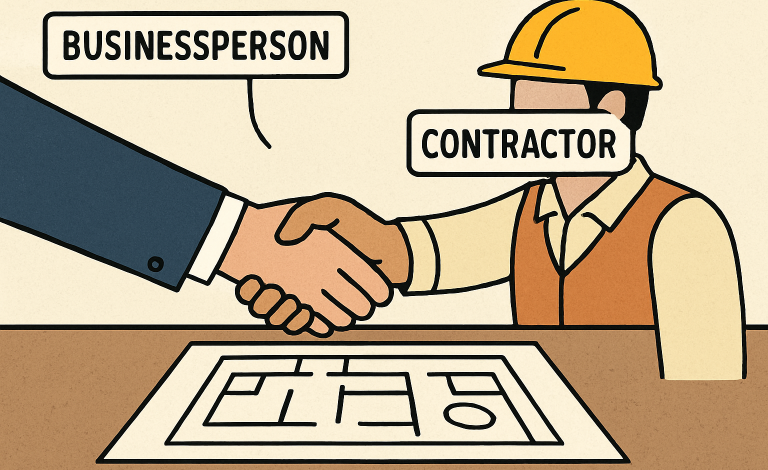How to Choose the Right Contractor for Your Commercial Construction Needs

Table of Contents
- Define Your Project Goals and Requirements
- Evaluate Experience and Expertise
- Verify Licensing, Insurance, and Certifications
- Assess Reputation and References
- Evaluate Communication and Project Management Skills
- Review Safety Standards and Practices
- Obtain Detailed Bids and Contracts
- Consider Financial Stability
- Conclusion
Taking on a commercial construction project is a substantial commitment, demanding both a well-conceived strategy and flawless execution. The choice of contractor plays a critical role—not only in the quality of the finished structure, but also in keeping the project on schedule and within budget. Entrusting your vision to an established professional, such as Snyder Construction, can significantly impact your project’s success from the outset. By selecting the right partner, project owners set the stage for smooth communication, adherence to timelines, and minimized risk.
Preparation is key: clearly defining your project requirements before seeking bids or interviewing firms is essential. This step enables you to compare contractors on a level playing field, ensuring that your expectations align with industry capabilities and pricing. When you outline your goals—whether for a retail center, medical facility, or multi-tenant office building—you empower your chosen contractor to deliver the best possible results, tailored to your specific needs.
Defining your project also means specifying square footage, anticipating future expansions, and communicating your budget range. Without a transparent conversation about these parameters, even the most skilled contractor may struggle to provide an accurate and actionable proposal. Early clarity on your goals enables both you and your construction team to avoid costly misunderstandings down the road.
Additionally, take time to research and compare multiple firms. By thoroughly investigating potential partners and remaining open to professional advice, you open the door to discovering methods or efficiencies you hadn’t considered.
Define Your Project Goals and Requirements
Successful construction starts with a clear vision. Before reaching out to any contractor, draft a detailed outline that covers your functional requirements, architectural style preferences, budget limitations, and your ideal completion date. Providing this information upfront positions you for more precise bids and helps contractors, such as Snyder Construction, recommend innovations or value engineering ideas that are specific to your objectives.
Evaluate Experience and Expertise
Expertise in commercial projects is non-negotiable. Scrutinize the portfolios of potential contractors to verify their experience in projects that resemble yours in terms of type and complexity. A company’s portfolio, case studies, and industry awards all provide insight into its proficiency. For example, a contractor well-versed in hospitality construction will have unique insights into energy efficiency, guest experience, and regulatory compliance that directly benefit your hotel project.
Verify Licensing, Insurance, and Certifications
Compliance protects everyone involved in commercial construction. Always request proof of local and state licensing, along with professional certifications relevant to your project’s scope. Contractors should also demonstrate adequate insurance coverage, including general liability, workers’ compensation, and, when applicable, surety bonds. This documentation confirms that you are dealing with a legitimate and credible business, thereby mitigating your financial risk in the event of accidents or disputes.
Assess Reputation and References
A contractor’s reputation serves as a reliable indicator of their professionalism and dependability. Request several references and follow up with previous clients to inquire about their communication practices, adherence to schedules, and management of unexpected challenges. Take time to visit completed job sites when possible. Reading digital testimonials and independent online reviews paints a nuanced picture of the contractor’s workmanship and customer service.
Evaluate Communication and Project Management Skills
Clear, timely communication prevents mistakes and keeps projects moving forward. During initial meetings, pay attention to a contractor’s responsiveness, transparency, and willingness to listen to your needs. Inquire about their project management systems—such as scheduling apps, budget tracking tools, or collaborative platforms. Contractors who embrace digital management tools are often better equipped to manage complex jobs efficiently and on time.
Review Safety Standards and Practices
Safety is paramount on active construction sites. Inquire about the safety protocols the contractor has in place, including employee training, incident reporting procedures, and OSHA compliance measures. Investigate their track record for job-site injuries or regulatory fines. Contractors with a culture of safety not only reduce risks for workers but also lessen the chance of work stoppages that can delay your timeline and impact your bottom line.
Obtain Detailed Bids and Contracts
Request bids from several prequalified firms, ensuring that each proposal includes a comprehensive breakdown of all costs, such as permit fees, labor, and construction materials. Clear contracts that spell out deliverables, schedules, payment terms, and procedures for handling change orders help both parties avoid surprises. Comparing apples to apples is only possible with detailed, line-item documentation in hand.
Consider Financial Stability
A construction project’s success relies partly on a contractor’s financial footing. Inquire about bonding capacity and request references from suppliers or financial institutions as needed. Your contractor should be able to demonstrate the ability to pay vendors, meet payroll, and manage large expenditures without encountering cash flow problems that could result in costly delays. Financial stability is an often-overlooked but critical consideration for any large-scale construction endeavor.
Conclusion
Taking the time to evaluate prospective commercial construction contractors thoroughly ensures a smoother, more predictable building process, greater satisfaction with the finished result, and stronger protection of your investment. By applying these guidelines, you position your project for timely completion, regulatory compliance, and enduring value.




